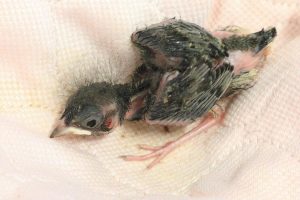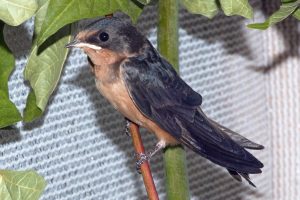Support Us
Since 1979 more than 140,000 animals have been treated by Wildlife Rescue.
Thanks to the support of individuals like you, Wildlife Rescue can provide a lifeline for animals in distress.
Spring and summer are a sensitive time of year for ground-nesting birds and we need your help to ensure ground-nesting wildlife like the northern junco, hermit thrushes, and meadowlark can lay and protect their eggs safely. One of the most common and easily forgotten human disturbances during spring is lawn mowing, which can harm wildlife.

Wanting to keep our front and back yards sustained is understandable, but there are times when these practices create devastating outcomes for wildlife during nesting season. Mowing earlier in the spring (perhaps before May), and later in the summer (in August) increases nest success and helps fledglings face one less obstacle during life outside the nest.
Fledglings aren’t equipped with all the skills or flight feathers needed to make it on their own in the wild. They require their parents to help them build these essential skills and get nutrition before they are ready to be on their own. Some fledglings can be on the ground for 1-2 weeks as fledgling stages differ in every bird species. Some may leave the nest immediately.
Lawns provide important nectar and pollen for pollinators which is lost or minimized when we mow. Fields (grasslands and meadows) also act as important locations for food and breeding for wildlife. Continual mowing can reduce or remove valuable habitats and discourage many wildlife species from visiting your property.
Continuous mowing has little value for wildlife. Areas that are not mowed frequently provide an excellent habitat for wildlife to nest, raise their young, and forage. Delaying or safely managing your mowing practices will help birds make it to adulthood.

Here are some things you can do to help increase nest success:
Nearly all birds are protected by Canada Migratory Birds Act, which makes it illegal to disturb or handle active nests. Don’t try to move a nest, even if it’s in an inconvenient spot. Please contact our Support Centre to ensure you are following federal laws and COVID-19 protocols for everyone’s safety.